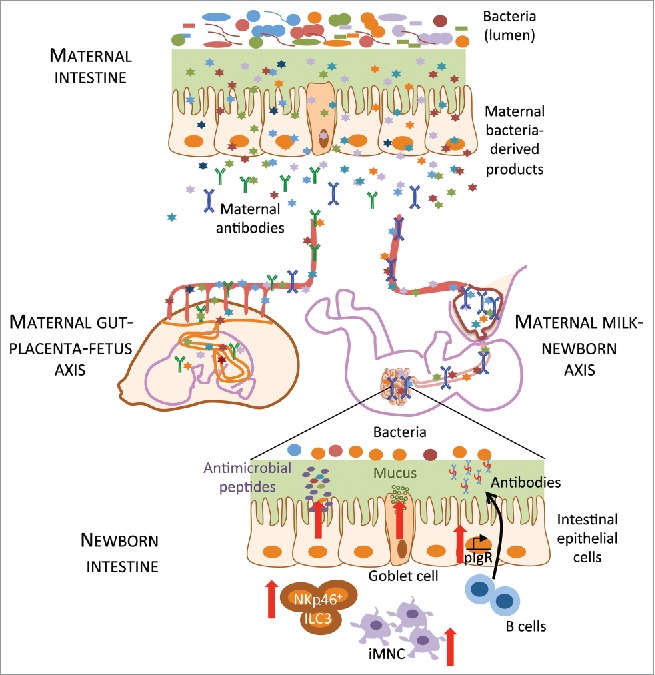Figure 2.

Maternal antibodies help in the transfer of microbial products to the offspring. Metabolites from the intestinal microbiota of the mother resulting from transient gestational colonization of the dam are transferred to the offspring antenatally via the placenta and postnatally through the maternal milk and induce immune maturation of the offspring intestinal mucosa, such as an increase in NKp46+ type 3 innate lymphoid cell (ILC3) and in intestinal mononuclear cell (iMNC) numbers. Expression of genes for antimicrobial peptides, mucus production and antibody secretion (pIgR: polymeric immunoglobuline receptor) were upregulated in intestinal epithelial cells in the offspring. Maternal antibodies (green: IgG, blue: dimeric IgA) mediated these effects, probably by more efficiently retaining microbial products in the maternal organism and transporting them to the placenta and/or the breast milk.
